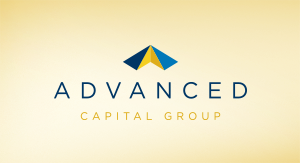The Cost of Missing Out.
2008 was a scarring experience for many. Due to market losses during the great recession, many have avoided stocks altogether causing them to miss the great bull market that followed. FOMO (or "Fear of Missing Out") is certainly something that may apply in popular culture but hasn't been embraced by many post-2008.
Holding too much cash?
Due to perceived risks in the market, many investors have simply avoided stocks because they mistakenly see stocks as a "risky" asset class long term. While it's true that stocks can (and do) fluctuate over the short term, many investors fail to see the big picture and make a mistake they are not detecting......inflation risk - a.k.a., the risk of holding too much cash.
How is too much cash a risk?
There are very good reasons why holding cash is risky:
It doesn't grow - you simply won't save enough money to fund your retirement!
It loses value - governments are always printing more of it.
It transfers poorly - cash doesn't pass as easily to your heirs.
It barely compounds - cash doesn't earn enough to compound beyond inflation.
Comparing Returns:
Let's assume the following investment:
Initial Deposit: $10,000
Years: Jan 2003 to Sept 2019
For this comparison, we will compare a "safe" asset very similar to cash (the iShares short-term treasury bond ETF) to a "risky" investment (Vanguard's Value Index Admiral Shares Fund) and compare what it costs to avoid the stock market. Both investments are widely available, low cost, and easy to buy. It is worth noting that this time period contains three significant market declines during 2008, 2011, and 2015. In the graph below, "Portfolio 1" in blue represents the equity investment while the red line indicates the "safe" asset. The ending values are as follows:
The "risky" investment: $46,092
The "non-risky" investment: $13,845
"Safe" Assets are Often Risky!
Despite protecting the investor from volatility, the long-term cost of avoiding the wealth building power of the market is simply impossible to ignore. If you are willing and able to endure some volatility, the long-term benefits have historically been worth the risk.

